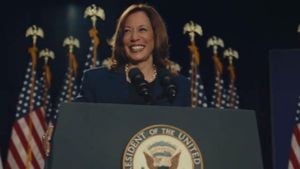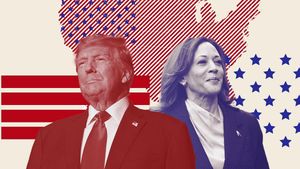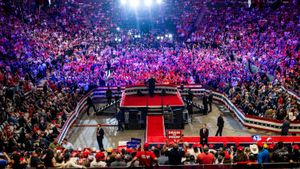The stage is set for the 2024 U.S. presidential election, and financial markets are already reacting to the potential candidates and their platforms. With both major parties gearing up for what promises to be a heated competition, investor sentiment is shifting, driven largely by speculation about who will emerge victorious and how their administrations could shape economic policy. The question on many minds is: how will these political dynamics impact markets?
Recent polling indicates increasing support for various candidates, but more than names and numbers, it's the policies those candidates propose—and how they may impact the economy—that truly matter to investors. For example, if former President Donald Trump decides to run, his previous administration’s economic policies could become back on the radar. On the flip side, President Joe Biden is expected to run for re-election, bringing with him the legacy of his handling of issues like inflation and taxes.
Markets traditionally react to election cycles due to the uncertainty they introduce. This time around, concerns about inflation, interest rates, and economic growth are at the forefront. Results from the recent Consumer Price Index (CPI) reveal inflation pressures persist, which could make investors wary as they wonder if the election outcomes might exacerbate or alleviate these issues.
For example, some analysts point to Republican candidates favoring lower taxes and deregulation as potentially beneficial for businesses. Investors may favor such policies, leading to bullish market reactions. Conversely, others suggest Democratic platforms focused on social spending and climate initiatives might lead to higher taxes for corporations, urging investors to tread cautiously.
Various sectors are distinctly impacted by candidate positions. For tech stocks, policies around data privacy and regulation could influence investor decisions. Healthcare stocks might respond to candidates’ positions on healthcare reform and drug prices. Industries such as renewable energy and fossil fuels will also experience fluctuations based on candidates’ climate change policies.
It’s interesting to note how much varying candidate platforms resonate differently depending on the sector. For example, bullish market sentiment among renewable energy firms is expected if candidates promoting sustainable energy solutions secure nominations. This reflects how intertwined politics and economic forecasting have become as tactics evolve based on immediate data and long-term projections.
Just as voters analyze candidate stances, Wall Street is equally vigilant. Market analysts are combing through debates, campaign rallies, and media interviews, picking up on subtle shifts. Early signs indicate cautious optimism among investors as they prepare for the unpredictable rollercoaster of the election season. While many financial experts advise caution, history tells us how pivotal these election cycles are for investment strategies.
Economic indicators, such as unemployment rates and GDP growth, are already providing benchmarks. Speculation around monetary policy remains high, influenced by the Federal Reserve's response to current economic conditions and any shifts prompted by candidate platforms. The Fed's approach will certainly be closely monitored as election day approaches, with investors holding their breath about the potential changes—would educational spending, infrastructure investments, or corporate tax changes come to fruition?
With election campaigning ramping up, one thing remains clear: markets will continue to react swiftly to news and developments surrounding the candidates. Unpredictability seems certain, as evidenced by the past elections. Analysts are preparing for wildcard events—unexpected polls, candidate withdrawals, or sudden shifts in party platforms—that could send stock prices zooming or plummeting.
Interestingly enough, social media has introduced new variables to the political arena, particularly for younger voters and investors. Platforms like Twitter and TikTok become hotbeds for political discussions, shaping public perception rapidly. Candidate memes or viral moments could influence financial markets—an unexpected tweet might rally support (or opposition) and can lead to immediate market reactions.
The intersection of technology, politics, and economics poses various questions for market watchers: How significantly will the results of the 2024 election shape U.S. economic policies? Are we bracing for volatility, or could we see stability as candidates emerge and solidify their platforms?
Looking back at previous election cycles, we see the undeniable impact on market trends and investor sentiment. The historic voter turnout during elections appears to correlate with more significant movements across the markets. The stakes are high this time around, not just for candidates but for the economy at large.
Whether one is optimistic or pessimistic about the upcoming elections, the reality is clear—investors must remain flexible and attuned to the shifting political winds. A strategy based solely on current policies could be shortsighted; anticipating potential changes based on electoral outcomes will drive smarter decisions as the race heats up.
To sum it up, as we head toward 2024, all eyes will be on the candidates, their policies, and the ever-prudent markets reacting to each twist and turn along the campaign trail. With so much at stake, stakeholders—from Wall Street to Main Street—will be watching closely, ready to pivot their strategies based on the outcomes of one of the most anticipated elections of our time.



